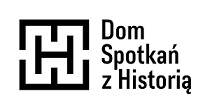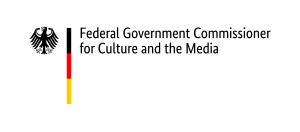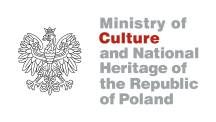The conference took place in November 2011 in Warsaw as an initiating event of the „Genealogies of Memory” project. Among the participants of the conference were researchers from Europe, US and Australia who debated on the state of memory studies in Central and Eastern Europe. The keynote address was given by prof. Aleida Assmann (University of Konstanz). The conference was an opportunity to review different approaches and findings from research projects. Presentations given during the conference discussed various themes, such as: memory in borderlands, media of remembrance, public and private discourses of past, role of historians in memory processes.
Read the conference reportAbout Genealogies of Memory 2011
Genealogies of Memory in Central and Eastern Europe. Theories and Methods
23-25 November 2011, Warsaw
Programme
Conference / Warsaw 2011
23/11/2011 Wednesday
11:30 am
Welcome and introduction
University of Warsaw Library
Rafał Rogulski
Jan Rydel
Małgorzata Pakier
Joanna Wawrzyniak
Jan Rydel
Małgorzata Pakier
Joanna Wawrzyniak
12:30 pm
History and memory in Central and Eastern Europe: How special?
Harald Wydra:
Dynamics of memory in East and West: Elements of a comparative framework
Sławomir Kapralski:
Ain't nothing special
Andrzej Nowak:
Constructed memories as elements of a political correctness
Chair: Jeffrey Olick
Dynamics of memory in East and West: Elements of a comparative framework
Sławomir Kapralski:
Ain't nothing special
Andrzej Nowak:
Constructed memories as elements of a political correctness
Chair: Jeffrey Olick
1:30 pm
Coffe break
2:00 pm
History and memory in Central and Eastern Europe: How special? Cont.
Joanna B. Michlic:
The trajectories of bringing the dark to light: Memory of the Holocaust in post-Communist Europe
Dariusz Stola:
On the peculiarities of memory of the 20th century in Poland: A delayed coming to terms with troubled pasts
Matthias Weber:
'The Germans': an East-European lieu de mémoire. Asymmetry of memories in Germany and Poland – in German
Chair: Jeffrey Olick
The trajectories of bringing the dark to light: Memory of the Holocaust in post-Communist Europe
Dariusz Stola:
On the peculiarities of memory of the 20th century in Poland: A delayed coming to terms with troubled pasts
Matthias Weber:
'The Germans': an East-European lieu de mémoire. Asymmetry of memories in Germany and Poland – in German
Chair: Jeffrey Olick
3:30 pm
Coffe break
4:30 pm
Parallel sessions. Lieux de mémoire (1)
Maciej Górny, Kornelia Kończal:
Polish-German realms of memory. The theory and practice of an interdisciplinary project – in Polish
Filip Pazderski:
Local realms of memory in the borderland areas in Central and Eastern Europe as indicators of processes of regional collective remembering
Anna Zalewska:
Bullets, buttons, stones and bones as the carriers of memory – the Olszynka Grochowska case
Marcin Napiórkowski:
The Warsaw Uprising as a generator of sense
Chair: Burkhard Olschowsky
Commentator: Włodzimierz Borodziej
Polish-German realms of memory. The theory and practice of an interdisciplinary project – in Polish
Filip Pazderski:
Local realms of memory in the borderland areas in Central and Eastern Europe as indicators of processes of regional collective remembering
Anna Zalewska:
Bullets, buttons, stones and bones as the carriers of memory – the Olszynka Grochowska case
Marcin Napiórkowski:
The Warsaw Uprising as a generator of sense
Chair: Burkhard Olschowsky
Commentator: Włodzimierz Borodziej
4:30 pm
Parallel sessions. Lieux de mémoire (2)
Jacek Chrobaczyński, Piotr Trojański:
Auschwitz and Katyń: the lenses of memory
Lidia Jurek:
Drawing up the boundaries of the endless empty steppe – the recuperation of memory of the Gulag in Eastern Europe
James Mark:
Where can the collapse of communism be celebrated? The problems of commemorating 1989 in Central-Eastern Europe
Chair: Wulf Kansteiner
Commentator: Piotr Kwiatkowski
Auschwitz and Katyń: the lenses of memory
Lidia Jurek:
Drawing up the boundaries of the endless empty steppe – the recuperation of memory of the Gulag in Eastern Europe
James Mark:
Where can the collapse of communism be celebrated? The problems of commemorating 1989 in Central-Eastern Europe
Chair: Wulf Kansteiner
Commentator: Piotr Kwiatkowski
6:30 pm
Coffe break
7:00 pm
Keynote: Aleida Assmann - The transformative power of memory
Chair: Jan Rydel
24/11/2011 Thursday
9:00 am
Parallel sessions. Theories and concepts (1): Traditions
Alexey Vasilyev:
Russian memory studies in the context of actual world trends
Elżbieta Tarkowska:
Collective memory, social time and culture: The Polish tradition in memory studies
Jarosław Kilias:
Is there any sociological tradition of social memory research? The Polish and the Czech cases
Georgiy Kasianov, Karolina Wigura:
Between nation-building and westernization. Studies of cultures of remembrance in Contemporary Central Eastern Europe
Chair: Andrzej Szpociński
Commentator: Barbara Szacka – in Polish
Russian memory studies in the context of actual world trends
Elżbieta Tarkowska:
Collective memory, social time and culture: The Polish tradition in memory studies
Jarosław Kilias:
Is there any sociological tradition of social memory research? The Polish and the Czech cases
Georgiy Kasianov, Karolina Wigura:
Between nation-building and westernization. Studies of cultures of remembrance in Contemporary Central Eastern Europe
Chair: Andrzej Szpociński
Commentator: Barbara Szacka – in Polish
9:00 am
Parallel sessions. Dynamics of memory (1): Biographies
Kaja Kaźmierska:
Biographical and collective memory – mutual influences in the Central and Eastern European context
Machteld Venken, Jarosław Pałka:
Similar or different? Polish soldiers' war memories in Poland and Belgium
Martina Staats:
Memories of Bergen-Belsen
Michał Kierzkowski:
Divided European memory: A perspective of women's memory of Stalinism in Czechoslovakia
Chair: Alexander von Plato
Commentator: Lutz Niethammer
Biographical and collective memory – mutual influences in the Central and Eastern European context
Machteld Venken, Jarosław Pałka:
Similar or different? Polish soldiers' war memories in Poland and Belgium
Martina Staats:
Memories of Bergen-Belsen
Michał Kierzkowski:
Divided European memory: A perspective of women's memory of Stalinism in Czechoslovakia
Chair: Alexander von Plato
Commentator: Lutz Niethammer
11:00 am
Coffe break
11:30 am
Parallel sessions. Theories and concepts (2): Traditions
Gregor Feindt, Félix Krawatzek:
Entangled memories: A new conceptual approach to memory in Eastern Europe
Marta Bucholc:
On the potential of Norbert Elias’s approach in social memory research in Central and Eastern Europe
Amelia Korzeniewska, Bartosz Korzeniewski:
Transformation of memory. Theoretical modeling and the practice of empirical research - in Polish
Magdalena Saryusz-Wolska:
Modi memorandi. An interdisciplinary lexicon of collective memory terms
Chair: Gertrud Pickhan
Commentator: Jeffrey Olick
Entangled memories: A new conceptual approach to memory in Eastern Europe
Marta Bucholc:
On the potential of Norbert Elias’s approach in social memory research in Central and Eastern Europe
Amelia Korzeniewska, Bartosz Korzeniewski:
Transformation of memory. Theoretical modeling and the practice of empirical research - in Polish
Magdalena Saryusz-Wolska:
Modi memorandi. An interdisciplinary lexicon of collective memory terms
Chair: Gertrud Pickhan
Commentator: Jeffrey Olick
11:30 am
Parallel sessions. Dynamics of memory (2): Biographies
Klutz Niethammer:
Eastern roots of postmodern ethics? The generation of Zygmunt Bauman and Agnes Heller
Wulf Kansteiner:
Historicizing memory studies: Holocaust interpretation and the concept of political generation
Katarzyna Waniek:
Third generation Poles and the witness generation of Germans in conversation about World War II
Aleksandra Rychlicka:
Who owns the past? The literature of the post-1989 generation and its struggle with memory
Chair: Harald Wydra
Commentator: Kaja Kaźmierska
Eastern roots of postmodern ethics? The generation of Zygmunt Bauman and Agnes Heller
Wulf Kansteiner:
Historicizing memory studies: Holocaust interpretation and the concept of political generation
Katarzyna Waniek:
Third generation Poles and the witness generation of Germans in conversation about World War II
Aleksandra Rychlicka:
Who owns the past? The literature of the post-1989 generation and its struggle with memory
Chair: Harald Wydra
Commentator: Kaja Kaźmierska
1:30 pm
Coffe break
3:00 pm
Parallel sessions. Media of remembrance (1): Space/Place
Máté Zombory:
Memory as spatial localization
Agnieszka Kudelka:
Monuments and memory constructs in L'viv between 1867 and 1939 - in German
Katja Grupp:
Kaliningrad minus Königsberg, culture minus memory: ‘foreign’ city in German and Russian perspective - in German
Judy Brown:
Walking memory through city space in Sevastopol, Crimea
Chair: Andrzej Nowak
Commentator: Sławomir Kapralski
Memory as spatial localization
Agnieszka Kudelka:
Monuments and memory constructs in L'viv between 1867 and 1939 - in German
Katja Grupp:
Kaliningrad minus Königsberg, culture minus memory: ‘foreign’ city in German and Russian perspective - in German
Judy Brown:
Walking memory through city space in Sevastopol, Crimea
Chair: Andrzej Nowak
Commentator: Sławomir Kapralski
3:00 pm
Parallel sessions. Media of remembrance (2): Museum and Film
Simina Bădică:
Regimes of memory in Communist and Post-Communist Romanian museums
Monika Heinemann:
The historical museum as a medium of remembrance – A case study on the memory of the Second World War in Poland after 1989
Gintare Malinauskaite:
Cinematic memory of the Lithuanian double occupation: The development of partisan and Holocaust cinema and its interrelation
Małgorzata Pakier:
German and Polish Holocaust cinema: The national factories of the European dream
Chair: Lidia Jurek
Commentator: Nicoletta Diasio
Regimes of memory in Communist and Post-Communist Romanian museums
Monika Heinemann:
The historical museum as a medium of remembrance – A case study on the memory of the Second World War in Poland after 1989
Gintare Malinauskaite:
Cinematic memory of the Lithuanian double occupation: The development of partisan and Holocaust cinema and its interrelation
Małgorzata Pakier:
German and Polish Holocaust cinema: The national factories of the European dream
Chair: Lidia Jurek
Commentator: Nicoletta Diasio
5:00 pm
Coffe break
5:30 pm
Parallel sessions. (New) media of remembrance (3)
Gertrud Pickhan:
History turns digital – in German
Alexander von Plato:
Media and memory: The presentation and ‘use’ of witnesses in sound and image
Marcin Wilkowski:
Facebook as a sphere of commemoration: A critical view
Chair: Elżbieta Tarkowska
Commentator: Piotr Toczyski
History turns digital – in German
Alexander von Plato:
Media and memory: The presentation and ‘use’ of witnesses in sound and image
Marcin Wilkowski:
Facebook as a sphere of commemoration: A critical view
Chair: Elżbieta Tarkowska
Commentator: Piotr Toczyski
5:30 pm
Parallel sessions. Dynamics of memory (3): Borderlands
Tatiana Zhurzhenko:
Politics of memory and national identity in the post-Soviet borderlands: Ukraine/Russia and Ukraine/Poland
Tanya Zaharchenko:
How memory becomes identity: The curious case of East Ukraine
Małgorzata Głowacka-Grajper:
Anthropology of social memory of Kresy: territorial identity seen through the categories of tradition and politics of memory
Jan Kajfosz:
Contemporary social memories and the theory of magic How do we construct our past and how do we instrumentalize it? – in Polish
Chair: Joanna Kurczewska
Commentator: Ewa Nowicka
Politics of memory and national identity in the post-Soviet borderlands: Ukraine/Russia and Ukraine/Poland
Tanya Zaharchenko:
How memory becomes identity: The curious case of East Ukraine
Małgorzata Głowacka-Grajper:
Anthropology of social memory of Kresy: territorial identity seen through the categories of tradition and politics of memory
Jan Kajfosz:
Contemporary social memories and the theory of magic How do we construct our past and how do we instrumentalize it? – in Polish
Chair: Joanna Kurczewska
Commentator: Ewa Nowicka
25/11/2011 Friday
9:00 am
Parallel sessions. Media of remembrance (4): Literature
Heinrich Olschowsky:
Literature as a means of cultural memory on the specificity of the East-European region - in German
Stanisław Obirek:
Religious memory versus cultural memory in the works of Stanisław Vincenz – in Polish
Joanna Jeziorska-Haładyj:
Memory of loss: Danilo Kiš and Aleksander Jurewicz. A comparative perspective
Anna Zeidler-Janiszewska:
Mimesis as a form of memory in Holocaust literature and art - in Polish
Chair: Joanna B. Michlic
Commentator: Jacek Leociak – in Polish
Literature as a means of cultural memory on the specificity of the East-European region - in German
Stanisław Obirek:
Religious memory versus cultural memory in the works of Stanisław Vincenz – in Polish
Joanna Jeziorska-Haładyj:
Memory of loss: Danilo Kiš and Aleksander Jurewicz. A comparative perspective
Anna Zeidler-Janiszewska:
Mimesis as a form of memory in Holocaust literature and art - in Polish
Chair: Joanna B. Michlic
Commentator: Jacek Leociak – in Polish
9:00 am
Parallel sessions. Dynamics of memory (4): Silence and articulation
Simon M. Lewis:
The legacy of catastrophe: approaches and methods on the example of Belarus
Uilleam Blacker:
Unknowable and unspeakable? Traumatic memory and cultural representations of the Katyń massacre
Krisztina Németh:
Facts and narratives, contradictions and traumas: Can past lifeworlds be reconstructed?
Anna Lujza Szász:
Art, oblivion and memory: The case of Hungarian Roma
Chair: Tadeusz Szawiel
Commentator: Maciej Bugajewski
The legacy of catastrophe: approaches and methods on the example of Belarus
Uilleam Blacker:
Unknowable and unspeakable? Traumatic memory and cultural representations of the Katyń massacre
Krisztina Németh:
Facts and narratives, contradictions and traumas: Can past lifeworlds be reconstructed?
Anna Lujza Szász:
Art, oblivion and memory: The case of Hungarian Roma
Chair: Tadeusz Szawiel
Commentator: Maciej Bugajewski
11:00 am
Coffe break
11:30 am
Parallel sessions. Media of remembrance (5): The various roles of historians
Larysa Buryak:
Memory studies in Ukrainian historiography: Tendencies and perspectives
Michał Łuczewski, Tomasz Zarycki:
Scholarly debates and moral ontologies in Poland and Russia
Agnieszka Nowakowska:
Teaching Polish-Lithuanian history
Izabela Skórzyńska:
Historian amidst the past as performance: an observer or a perfomer?
Chair: Cristina Petrescu
Commentator: Wulf Kansteiner
Memory studies in Ukrainian historiography: Tendencies and perspectives
Michał Łuczewski, Tomasz Zarycki:
Scholarly debates and moral ontologies in Poland and Russia
Agnieszka Nowakowska:
Teaching Polish-Lithuanian history
Izabela Skórzyńska:
Historian amidst the past as performance: an observer or a perfomer?
Chair: Cristina Petrescu
Commentator: Wulf Kansteiner
11:30 am
Parallel sessions. Dynamics of memory (5): Private/vernacular – public/official
Karen Auerbach:
Memory, identity and the writing of history: a case study of Jewish life in Poland after the Holocaust
Nicoletta Diasio:
Remembrance as embodiment in Polish contemporary memories
Piotr Kwiatkowski:
World War II in the memory of today’s Polish society
Chair: Joanna Wawrzyniak
Commentator: Olga Shevchenko
Memory, identity and the writing of history: a case study of Jewish life in Poland after the Holocaust
Nicoletta Diasio:
Remembrance as embodiment in Polish contemporary memories
Piotr Kwiatkowski:
World War II in the memory of today’s Polish society
Chair: Joanna Wawrzyniak
Commentator: Olga Shevchenko
1:30 pm
Coffe break
3:00 pm
Marcin Jarząbek:
What kind of memory orders you to demolish a historical exhibition? – a case study of the Silesian Uprisings’ history-memory quid-pro-quo
Florian Peters:
'Memory' vs. 'History'? Discourses on World War II in Late Socialist Poland
Gábor Gyáni:
History in public use in today’s Hungary
Cristina Petrescu, Dragos Petrescu:
Cultural memory in the making: Communism remembered in post-1989 Romania
Chair: Karen Auerbach
Commentator: Georgiy Kasianov
What kind of memory orders you to demolish a historical exhibition? – a case study of the Silesian Uprisings’ history-memory quid-pro-quo
Florian Peters:
'Memory' vs. 'History'? Discourses on World War II in Late Socialist Poland
Gábor Gyáni:
History in public use in today’s Hungary
Cristina Petrescu, Dragos Petrescu:
Cultural memory in the making: Communism remembered in post-1989 Romania
Chair: Karen Auerbach
Commentator: Georgiy Kasianov
3:00 pm
Parallel sessions. Dynamics of memory (6): Struggles for power and legitimacy
Dalia Agata Báthory:
Memory traps: Uses and abuses of collective memory in politics
Stanisław Tyszka:
Legal means of remembrance. Property restitution in Czech and Polish public debates after 1989
Zuzanna Bogumił:
Politics and religion. New martyrs and the interpretations of the Soviet past
Robert Wyszyński:
Young nations imagining the past. The indigeneous societies of the former Soviet Union – in Polish
Chair: James Mark
Commentator: Marek Cichocki
Memory traps: Uses and abuses of collective memory in politics
Stanisław Tyszka:
Legal means of remembrance. Property restitution in Czech and Polish public debates after 1989
Zuzanna Bogumił:
Politics and religion. New martyrs and the interpretations of the Soviet past
Robert Wyszyński:
Young nations imagining the past. The indigeneous societies of the former Soviet Union – in Polish
Chair: James Mark
Commentator: Marek Cichocki
5:00 pm
Coffe break
5:30 pm
Final discussion: What memory for what past – what theory for what memory?
Introduction Jeffrey Olick
Chair: Sławomir Kapralski
Chair: Sławomir Kapralski










